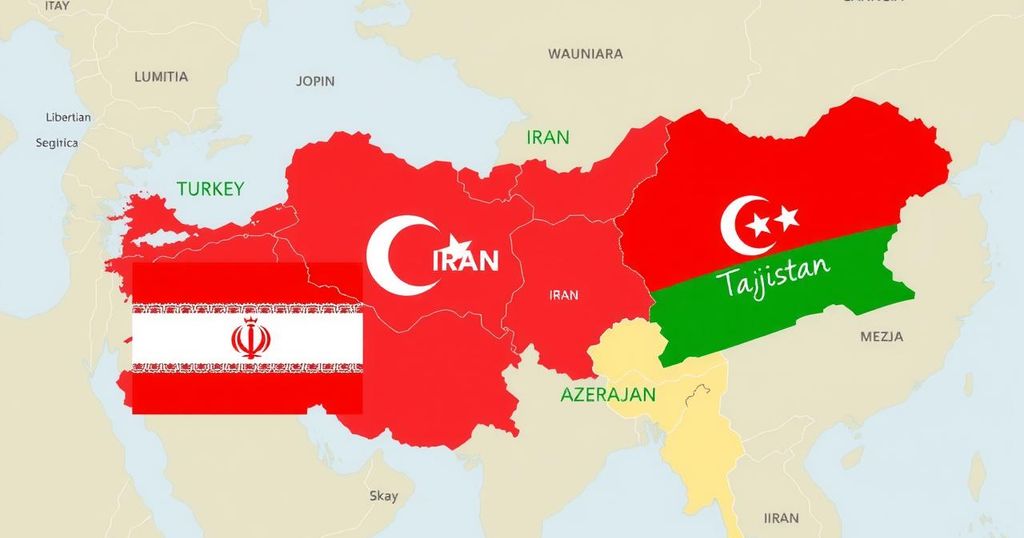Pakistan PM Sharif to Embark on Diplomatic Tour in Response to Rising Tensions
Pakistani PM Sharif plans a diplomatic visit to Turkiye, Iran, Azerbaijan, and Tajikistan. This move follows increased tensions with India after terrorist threats highlighted by a recent attack. Sharif’s tour is aimed at strengthening regional ties and addressing security cooperation amid ongoing geopolitical challenges.
In a notable move, Prime Minister Shahbaz Sharif of Pakistan is set to embark on a diplomatic tour across Turkiye, Iran, Azerbaijan, and Tajikistan. This visit is significant following recent tensions with India, especially after the Pahalgam attack, which has prompted India to bring attention to terrorism concerns originating from Pakistan. In response, the Pakistani government appears to be ramping up its diplomatic initiatives to strengthen its ties with neighboring countries.
In recent days, the diplomatic landscape has been tinged with heightened rhetoric. Following India’s delegation’s travels, which aimed to underline the threat of terrorism, Pakistan’s proactive stance is seen as an effort to counteract the narrative and reaffirm its regional alliances. The countries included in Sharif’s itinerary are all strategically important within Central Asia and the Middle East, potentially providing a platform for discussions on bilateral relations and security cooperation.
The specific agenda of this tour remains under wraps, but observers speculate that issues of security, economic collaboration, and addressing mutual concerns between these nations will be central. As part of Sharif’s visit, discussions could also touch on regional stability amidst ongoing conflicts that affect the region. While Pakistan grapples with its pace of recovery following various incidents, fostering relationships with these nations might be vital for its geopolitical strategy.
The relationship between Pakistan and India continues to be strained, especially post-Pahalgam. The Indian government has actively called for international recognition of the terrorist activities attributed to militants based in Pakistan. According to analysts, Sharif’s visit should be interpreted as a bid to reinforce Pakistan’s diplomatic leverage in order to manage such adversities in the international arena.
In this context, each of the four countries offers unique opportunities for Pakistan. Turkiye, with its growing influence in global affairs, is a pivotal player, and Iran shares a long border with Pakistan. Azerbaijan and Tajikistan also present economic partnerships that could be mutually beneficial. The outcome of Sharif’s visit remains to be seen, however, its intention to create a united front against terrorism resonates strongly across these nations.
Amid these developments within Pakistan’s foreign policy landscape, regional stakeholders are closely monitoring how this diplomatic mission unfolds amidst soaring tensions in various areas. The landscape of Central Asian geopolitics is shifting, and Sharif’s travel is expected to play a significant role in this ongoing evolution. As these discussions advance, the response from India and other regional players will define the broader narrative moving forward.
In summary, Prime Minister Shahbaz Sharif’s upcoming diplomatic tour of Turkiye, Iran, Azerbaijan, and Tajikistan represents a strategic maneuver in response to heightened tensions with India following the Pahalgam attack. This visit aims to strengthen Pakistan’s diplomatic relations and counteract negative perceptions, particularly concerning terrorism. The implications of these discussions could have a lasting impact on regional stability and security cooperation.
Original Source: www.wionews.com




Post Comment